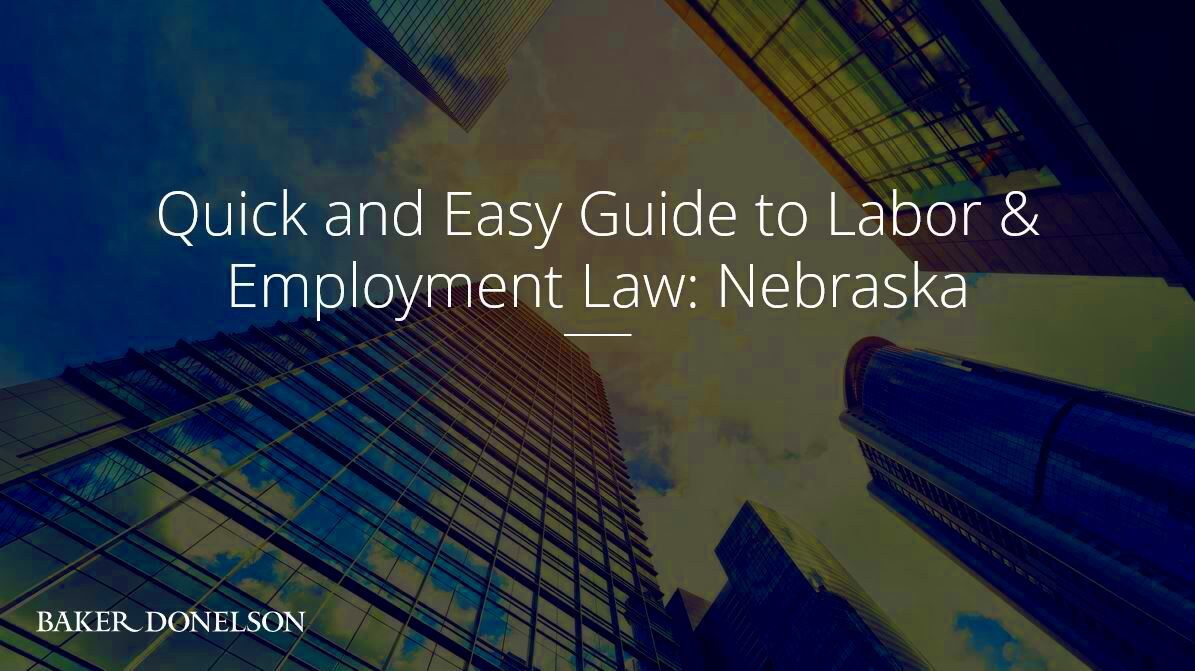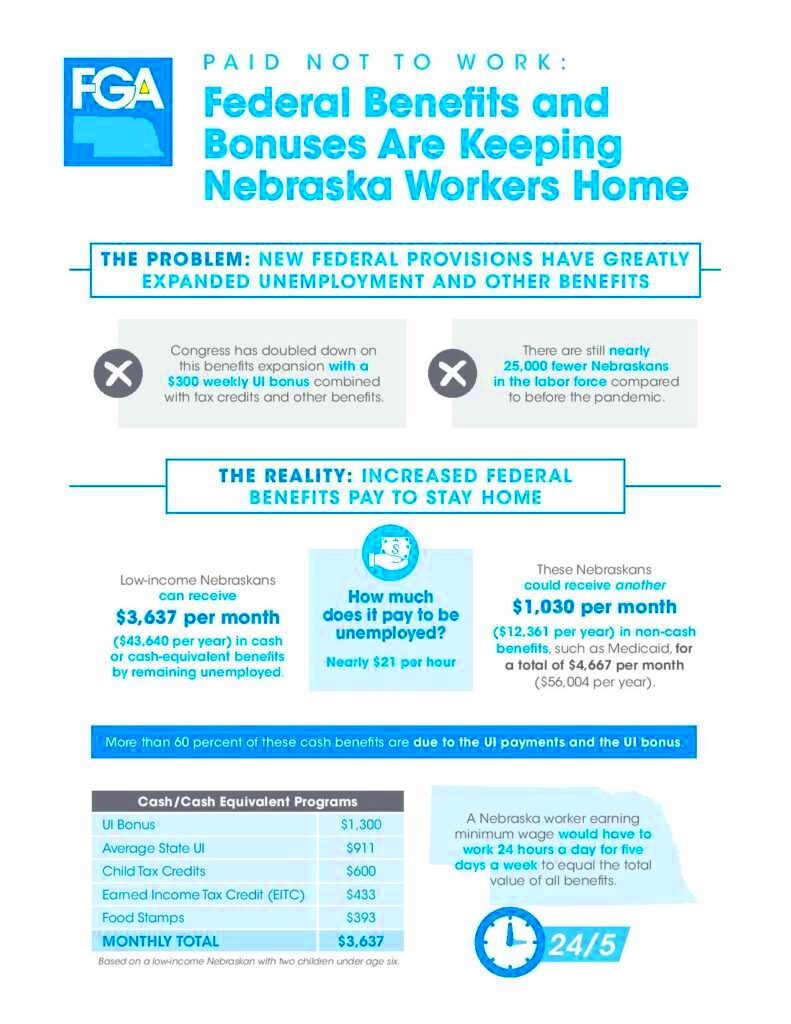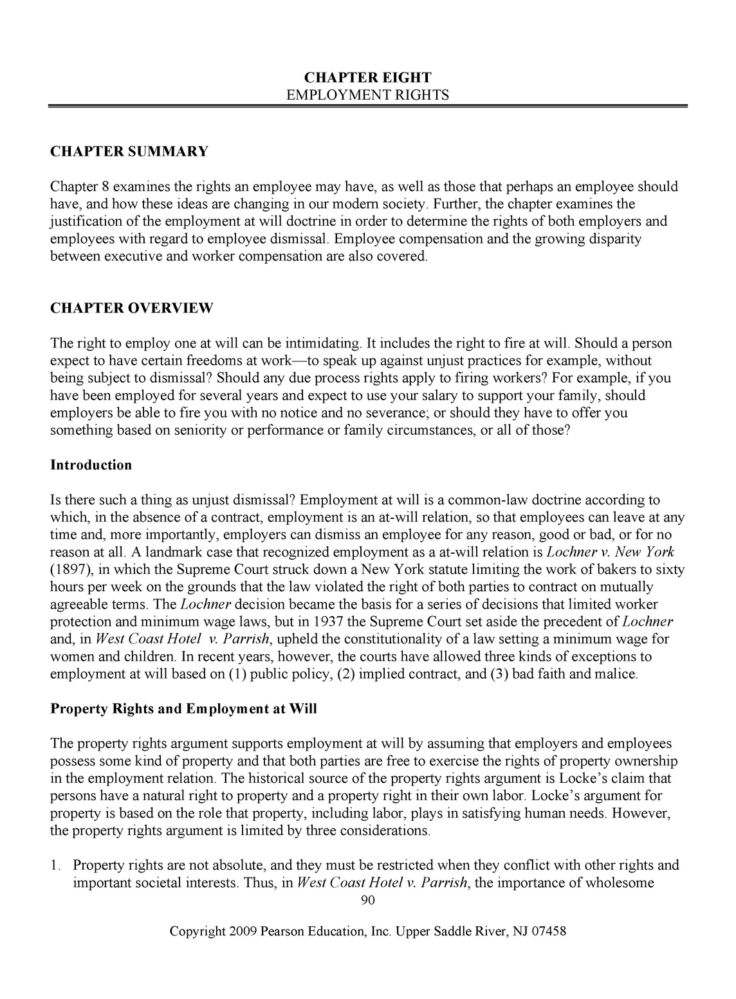Nebraska Employment Rights Explained
Beginning a career in Nebraska calls for knowledge of your employment rights. Your workplace will be safe with these rights and you will receive equitable treatment from the employer. If one understands such rights, issues such as discrimination, salary disputes or wrongful termination can be solved easily. This article seeks to elaborate on meaning of employment rights, their significance in the life of workers and its effects on their work life in Nebraska.
Key Laws Protecting Employees in Nebraska

In Nebraska, there are various legal frameworks established that are meant to safeguard workers and ensure their fair treatment in the workplace. Here are essential laws that you may need to bear in mind:
- Nebraska Fair Employment Practice Act: This law prohibits discrimination in employment based on race, color, religion, sex, disability, marital status, or national origin.
- Nebraska Wage Payment and Collection Act: This act ensures that employees receive their wages promptly and protects them from unlawful wage deductions.
- Nebraska Occupational Safety and Health Act: This law ensures safe working conditions by regulating workplace safety standards.
Learn the statutes in order to know your entitlements and make a move if you suspect they are being infringed upon.
Types of Employment Discrimination

Workplace discrimination can take many shapes. It is important to understand these types for effective identification and addressing. Below are some common categories of job discrimination:
- Race Discrimination: Treating someone unfavorably because of their race or characteristics associated with race.
- Gender Discrimination: Discrimination based on a person’s gender or sexual orientation.
- Age Discrimination: Unfair treatment of an employee based on their age, particularly for individuals over 40.
- Disability Discrimination: Treating someone unfavorably because they have a disability or a history of a disability.
- Religious Discrimination: Treating an employee unfavorably because of their religious beliefs.
Every form of discrimination is illegal and can have detrimental effects for employers. In the event that you suspect that you have experienced any kind of discrimination, it is important that you take steps to address it and look for help.
Workplace Harassment and Employee Protections
Discrimination at work is a big problem that strikes numerous employees in different sectors. It is important to comprehend the nature of harassment and how you can be protected against it in Nebraska. Harassment may assume different shapes such as verbal words, physical behavior or even unsuitable jokes. In case you find yourself in a situation that makes you uneasy or fearful, being aware of your rights gives you power to act.
The Nebraska Fair Employment Practice Act forbid harassments in Nebraska that are founded on race, sex or disability. If you face harassments, these are some measures you might consider taking:
- Document the incidents: Keep a record of dates, times, and details of each incident.
- Report the behavior: Notify your supervisor or HR department about the harassment.
- Seek support: Reach out to colleagues, friends, or a counselor for emotional support.
- File a complaint: If the issue is not resolved, consider filing a formal complaint with the Nebraska Equal Opportunity Commission.
In order to effectively deal with workplace harassment and make sure that there is a safer working environment, it is important to know your rights and procedures involved.
Wage and Hour Laws in Nebraska
Wage and hour rules are essential in helping ensure employee compensation fairness. Nebraska has various laws that regulate step earnings, working hours, and overtime pay. Gaining an insight into these laws can equip you with knowledge on what to expect plus how to deal with wage matters; hence it will no longer surprise you when the issue comes up.
Some important considerations about wage and hour laws in Nebraska include:
- Minimum Wage: As of 2024, the minimum wage in Nebraska is $10.50 per hour. It’s important to know if your employer is paying you at least this amount.
- Overtime Pay: Employees must be paid overtime at a rate of 1.5 times their regular pay for hours worked over 40 in a workweek.
- Pay Frequency: Employers are required to pay employees at least every two weeks, and final paychecks must be given promptly after termination.
- Wage Deductions: Certain deductions are allowed, but your employer must inform you of these deductions in advance.
If you happen to believe that your rights are being infringed, for instance not receiving proper payment, feel free to raise it with your employer or seek legal counsel.
Unemployment Benefits and Rights
Those who find themselves unemployed through no fault of their own depend much on unemployment benefits. In Nebraska, temporary financial support is availed to individuals as they look for new jobs available. Being informed about your legal rights and the procedure involved can really help during this difficult time.
In Nebraska, the following are the main aspects of unemployment benefits:
- Eligibility Requirements: To qualify for unemployment benefits, you must have worked a certain number of hours and earned a minimum amount during a specified period.
- Filing a Claim: If you lose your job, you can file a claim online through the Nebraska Department of Labor’s website. Ensure you provide accurate information to avoid delays.
- Benefit Amounts: Your benefits will be calculated based on your previous earnings, with a maximum weekly benefit amount set by the state.
- Job Search Requirements: While receiving benefits, you must actively search for work and report your job search efforts.
When you think that it is not fair to you for the unemployment benefits to be denied, you can appeal the decision. The right and available resources as far as staying informed is concerned during this transition should be kept in mind.
How to Report Violations of Employment Rights
When it comes to knowing what to do, it can be overwhelming to feel like your job rights have been violated. Whether it is discrimination, harassment or wage issues, you must act. To find justice and have a fair workplace, Nebraska has clear procedures for reporting these offences.
Following is an uncomplicated instruction on how to make violations known:
- Document Everything: Keep a detailed record of incidents, including dates, times, locations, and any witnesses. This documentation can be crucial in supporting your claims.
- Review Company Policies: Check your employee handbook or company policies regarding complaints. This can give you insight into the procedures your employer has in place.
- Report Internally: Before escalating the issue, consider reporting it to your supervisor or human resources department. They may address the problem without further action.
- File a Complaint with State Authorities: If internal reporting doesn’t resolve the issue, you can file a complaint with the Nebraska Equal Opportunity Commission (NEOC) or the Nebraska Department of Labor. Be prepared to provide your documentation.
- Seek Legal Assistance: If you’re unsure about the process or feel your case is complex, it might be wise to consult with an attorney who specializes in employment law.
An essential part of defending your rights and advocating for justice at work universally is to report any breach.
Frequently Asked Questions About Employment Rights
It’s quite common for people to ask questions regarding their worker rights. This piece highlights some of the frequently asked questions on this subject and offers appropriate answers:
- What are protected characteristics under Nebraska law?
Protected characteristics include race, color, religion, sex, disability, marital status, and national origin. - Can I be fired for reporting harassment?
No, it is illegal for an employer to retaliate against an employee for reporting harassment or discrimination. - What should I do if I am not receiving minimum wage?
Document your hours and pay, then report this violation to the Nebraska Department of Labor. - How long do I have to file a discrimination complaint?
You typically have 300 days from the date of the alleged violation to file a complaint with the NEOC. - Can I receive unemployment benefits if I quit my job?
Generally, you must have lost your job through no fault of your own, but there are exceptions. It’s best to check specific eligibility criteria.
In case you have got more queries, think about contacting the nearby employment rights groups or lawyers who would be able to help you more.
Conclusion on Nebraska Employment Rights
In brief understanding what your employment rights are in Nebraska is important for establishing an equitable and honorable work environment. From being aware of the primary statutes that give protection to you, to being familiar with the procedures to report infringements, staying updated can give you strength. Always remember that discrimination, harassment or pay disputes can bring some challenges upon you; however, assistance is always available.
When you take steps before hand,’re capable of saving yourself from harassment and contributory towards a safer work environment that Everybody Will Like. In case of urgent need do not feel shy to call for assistance and always keep in mind your rights are too important to be violated.


